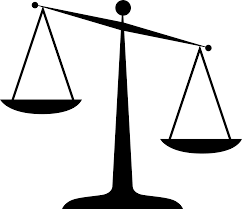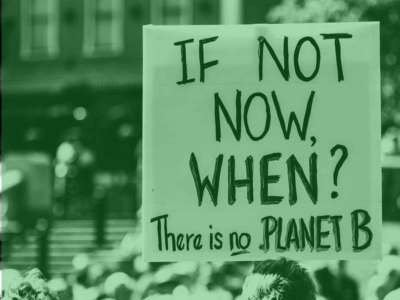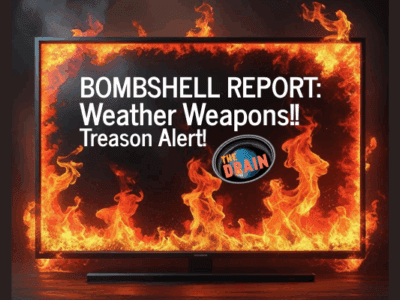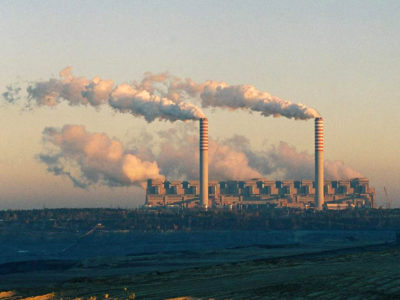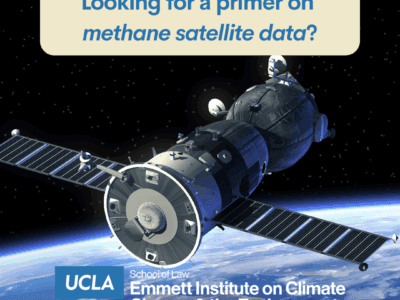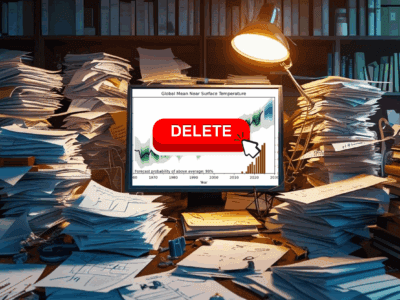Month: August 2025
Owens Valley Redux: Los Angeles was Right
Far from a theft, the decision to divert water to Los Angeles made economic, environmental, and equitable sense.
I have a new piece out in The Urban Lawyer about the Owens Valley that might be of interest to Legal Planet readers. Here is an abstract: Everyone knows that Los Angeles stole its water from the Owens Valley, creating environmental devastation and a legacy of rapacity. It is such a commonplace that it needs …
Continue reading “Owens Valley Redux: Los Angeles was Right”
CONTINUE READINGState Agencies Respond to Trump’s EV Threats
A solid list of proposals – are they enough?
The Trump Administration and Congress have spent much of the year attacking vehicle electrification efforts–everything from executive orders threatening electric vehicle policies and incentives (in the name of promoting “true consumer choice”) and the repeal of vehicle emission standards (backed by false claims of consumer savings) to the elimination of EV tax credits and manufacturing …
Continue reading “State Agencies Respond to Trump’s EV Threats”
CONTINUE READINGWhich Effects Count?
Conservatives argue that only the effects that they care about should matter.
Not that long ago, conservatives demanded that the government balance costs and benefits. They still do, but with a twist: They demand special limits on consideration of environmental effects. But that makes no sense. Whatever rules we have about costs should apply to all types of costs, and the same with benefits. The result of the skewing the analysis is, not surprisingly, that we get conservative results more often.
CONTINUE READINGStates Should Not Wait to “Make Polluters Pay”
Guest contributors Laura Fox and Doug Kysar write that now is the right time for more states to adopt climate accountability laws, despite ongoing legal challenges.
As states weigh whether to adopt climate accountability legislation like Vermont’s Climate Superfund Act, some are hesitating out of concern that the Second Circuit’s decision in City of New York v. Chevron Corp., 993 F.3d 81 (2d Cir. 2021), dooms such efforts. That concern is misplaced. In fact, now is precisely the time for states …
Continue reading “States Should Not Wait to “Make Polluters Pay””
CONTINUE READINGWhy Does Misinformation Follow Extreme Weather?
The Drain is a weekly roundup of environmental and climate news from Legal Planet.
Nowadays when an extreme weather event strikes in America, what follows is a secondary emergency in the form of misinformation on social media. We’ve seen it play out after floods and heat waves, but this phenomenon really goes into overdrive after hurricanes and wildfires. A recent report from the Center for Countering Digital Hate looked …
Continue reading “Why Does Misinformation Follow Extreme Weather?”
CONTINUE READINGThe Woeful Economics of a Misguided Rollback
The costs of Trump’s rollback of key climate rules far outweigh any benefits.
Trump’s rollback of regulations limiting emissions from power plants is an economic disaster. According to economists, health damages far exceed savings from lower compliance costs. Just considering health impacts alone, the net cost of the rollback will be $129 billion through 2050. Climate damages add another $148 billion in costs.
CONTINUE READINGWhat Do Bureaucrats Maximize?
New research demonstrates that governments can reduce intractable emissions problems — if they have the right incentives
It’s no secret that Delhi has perhaps the worst air quality in the world, and it’s also no secret that crop-burning in nearby agricultural areas is one of the principal causes (along with topography). But what can you do about it? It’s illegal already, but because crop-burning is a cheap and effective way to get rid …
Continue reading “What Do Bureaucrats Maximize?”
CONTINUE READINGHow Methane Satellites Work and Why it Matters
This new UCLA Law report aims to help policymakers understand the science and utility of methane satellites.
These days, I’ll take progress on climate change where I can get it. And one place to look right now is up — literally. New satellites are providing never-before-seen data about global methane sources, helping policymakers, industry, and others target that superpollutant in new ways. Today, some colleagues at UCLA Law and I are releasing …
Continue reading “How Methane Satellites Work and Why it Matters”
CONTINUE READINGDear 2025 1L:
Avoiding a climate disaster isn’t something today’s students can plan on tackling “over the course of their careers.” The most critical time will be the next fifteen years, which means you’ll need to get to work quickly.What we do together between now and 2035 will determine what your lives look like in 2050 and 2080, and what your children and grandchildren will see in the next century. So grab your books, get yourselves ready, and be prepared to head for the trenches when you graduate. No time to waste!
CONTINUE READINGThe Energy Secretary Pushes Pseudoscience
The Drain is a weekly roundup of environmental and climate news from Legal Planet.
Remember alternative facts? That catch phrase from Season 1, Episode 1 where Trump officials lied about the size of his inauguration crowd has now metastasized into a governing philosophy for how federal agencies plan to ignore, and ultimately exacerbate, the climate crisis. Trump 2.0 is pushing alternative science. Late last month, Energy Secretary Chris Wright …
Continue reading “The Energy Secretary Pushes Pseudoscience”
CONTINUE READING




